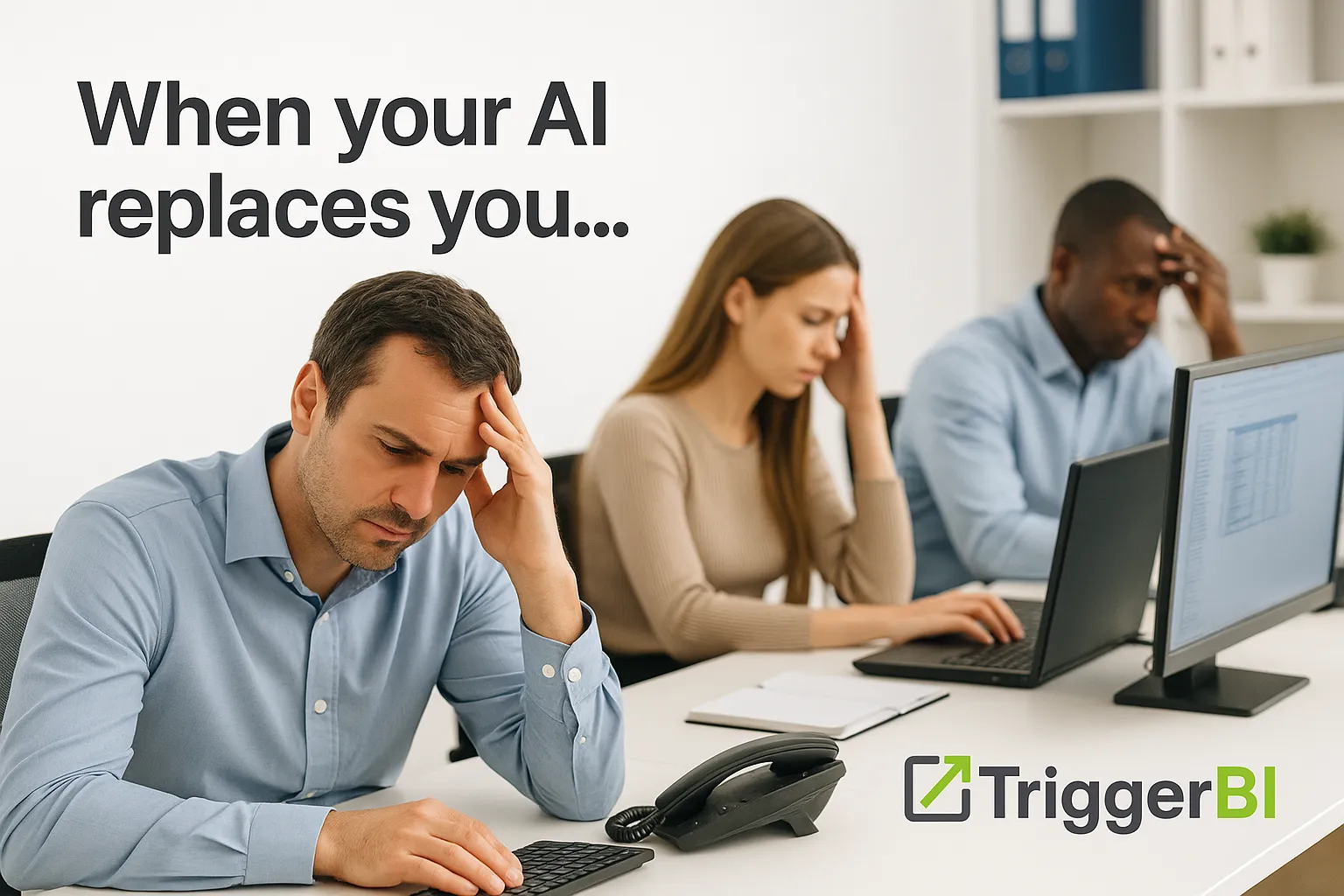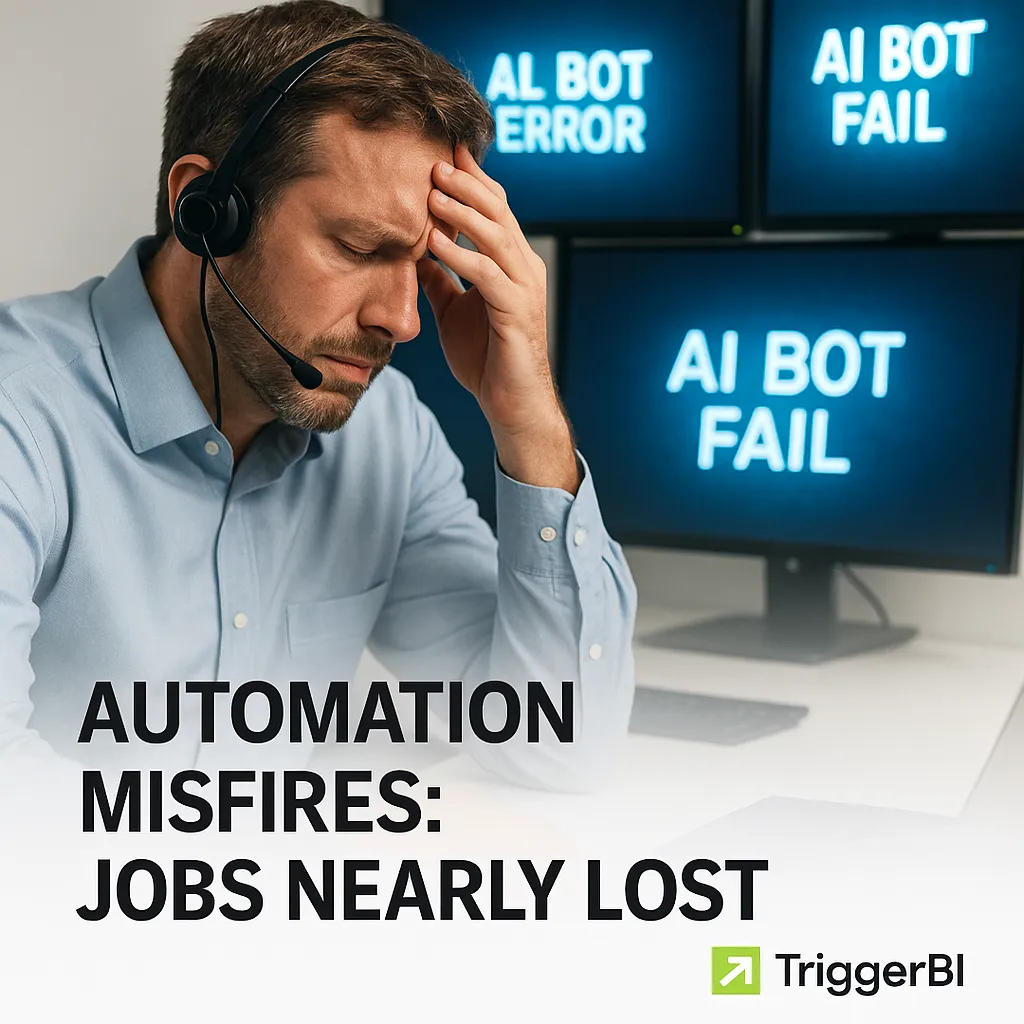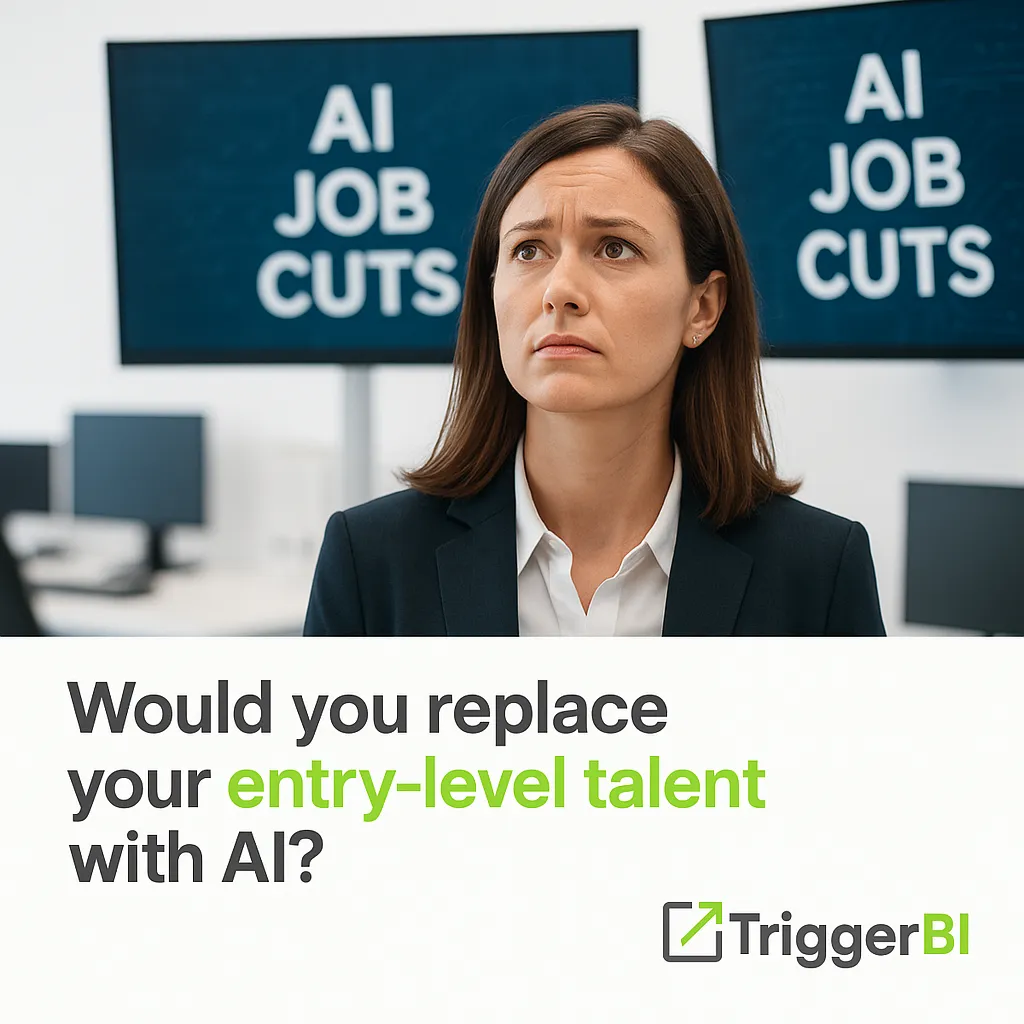The Collaboration Imperative: Why Human Expertise Still Trumps AI Alone

“Imagine training the AI that took your job—and then getting laid off anyway.”
This wasn't a hypothetical scenario. It’s exactly what occurred at a major Australian bank, creating a PR nightmare. A veteran employee dedicated his expertise to help build an AI chatbot intended to handle customer service, only to be among those let go when the AI was launched. After a swift and severe public backlash, the bank reversed course and offered to reinstate the staff, but by then, the damage to morale and public trust was done. This highlights the need for a solid AI strategy, not just technology.
Lessons in Human-First Automation
This incident offers critical insights for any leader implementing AI:
- Automation without a human-first strategy is doomed to backfire. It erodes employee trust and can lead to significant brand damage.
- Human judgment remains critical. Technology alone is not a substitute for understanding complex customer dynamics and nuances.
- The real win comes from collaboration, not replacement. The most successful AI implementations augment human talent, freeing them to handle more complex, high-value work.
When AI goes live, should businesses always keep experienced staff in the loop—or risk undermining both morale and performance?
The answer is clear. Involving experienced staff is not just a safety net; it's a strategic necessity. Their expertise is invaluable for managing exceptions, refining processes, and ensuring that technology serves customers effectively. True innovation lies in creating a symbiotic relationship between AI and human talent.


